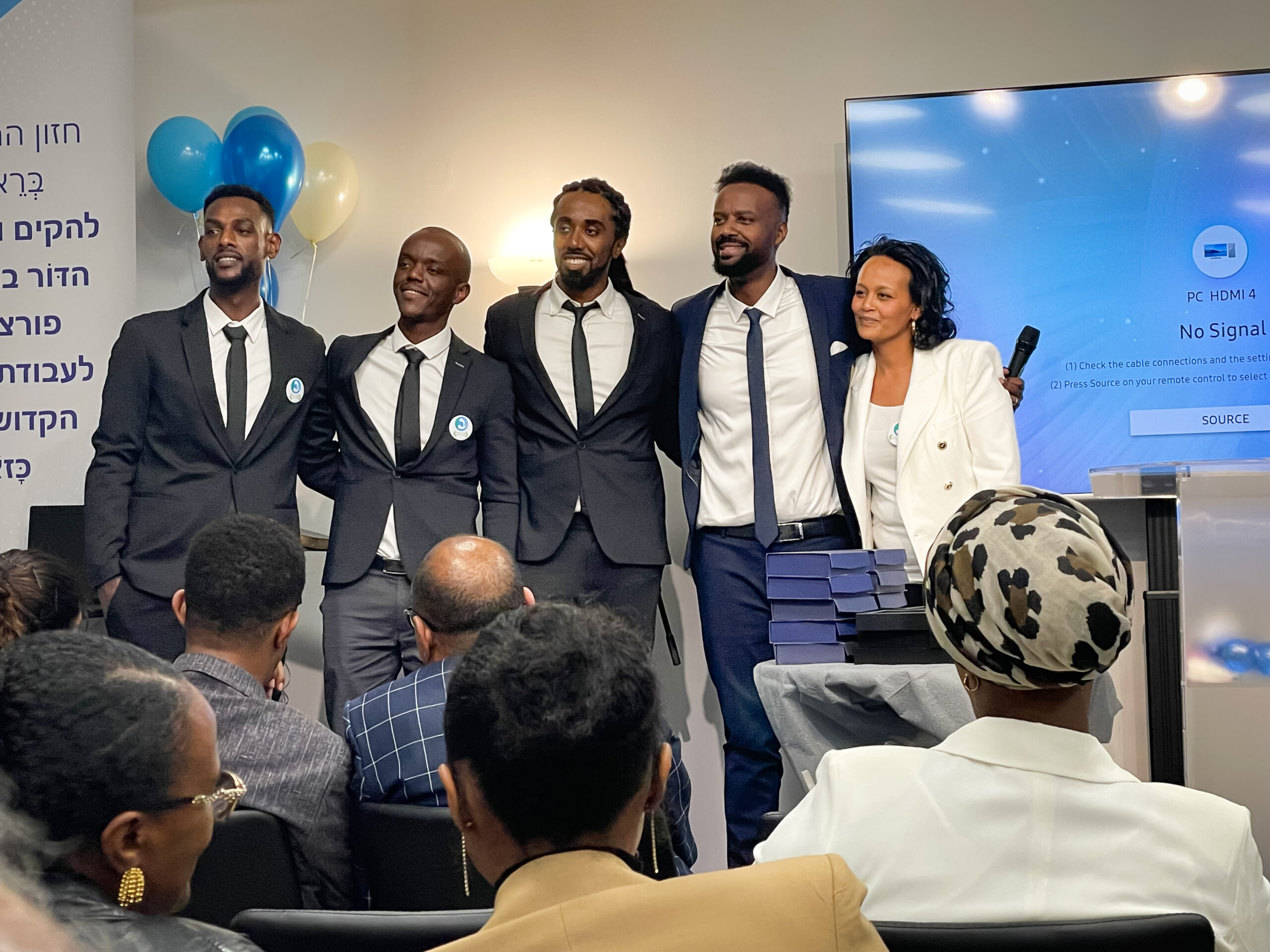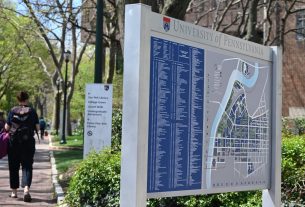This article was produced as part of (JEWISH REVIEW)’s Teen Journalism Fellowship, a program that works with Jewish teens around the world to report on issues that affect their lives.
((JEWISH REVIEW)) — Eddie Rohla, 13, traveled 102 miles to celebrate his first Rosh Hashanah after his recent bar mitzvah as a new convert to Judaism. The Rohla family regularly travels two hours from their small town of Chester, Oklahoma to attend services at Temple B’nai Israel in Oklahoma City.
When Eddie’s mother, who immigrated to the U.S. from Germany and who was not religious previously, decided to convert to Judaism about two years ago, she gave Eddie the option to convert with her. Since he had enjoyed his experiences of engaging in the Jewish community with his family, choosing to become Jewish was an easy choice for him.
“I had a lot of fun during it all, and on my bar mitzvah, I learned a lot about my heritage,” said Eddie, who now loves celebrating holidays with his family and congregation.
Oklahoma is a front-runner in welcoming Jews by choice. Although 42 states have more Jews than Oklahoma, the state is seeing a boomlet of new converts. According to data provided to the (JEWISH REVIEW) by the American Jewish Archive, an estimated 7.6% of the Oklahoma Jewish community are Jews by choice. This makes Oklahoma only second to North Dakota in the U.S. for the highest percentage of converts. Oklahoma also has the second-highest rate of recent conversions, growing by 1.3% through conversions between 2013 and 2023 (ranking behind Arkansas).
“This has always been a community with a high interest in people adopting Judaism,” said Rabbi Vered Harris of Temple B’nai Israel. However, even she is surprised at the sharp rise in conversions over the past decade. During that time, she convened 41 batei din (plural of beit din, the rabbinical court that presides at a conversion) within her congregation. Her Intro to Judaism classes typically register 30 people yearly, which she credits to a regional culture deeply steeped in religion. In 2016, the last time it checked, the Pew Research Center found that Oklahoma ranked 7th “among the most highly religious states in the nation,” with 64 percent of its residents agreeing that “religion is very important in their lives.”
“I think living somewhere that people ask, ‘Where do you go to church?’ puts pressure on folks to be involved in religion,” Harris said.
This focus on religion pushes people to question their beliefs and find a home to match them, Harris says. “If someone has an inclination towards religion and Christianity is not for them, they go on a search,” she said. Her congregants talk to her about the “accepting nature of Judaism for people who have a lot of questions or are LGTBQ+ or don’t believe in the trinity or are searching for rituals and community.”
The accepting nature of Judaism was enticing to Jett, 12, who recently converted. Jett requested that only their first name be published due to issues of personal safety as a nonbinary person who lives in a community that is hostile to their identity. They appreciated how the community included them for the two years before their conversion by allowing them to enroll in Hebrew and Sunday school and participate in youth group activities.
Jewish law requires that one immerse in a mikveh, or ritual bath, as part of the process of conversion to Judaism. (iStock, via My Jewish Learning)
At their previous school, which was part of the Catholic archdiocese, Jett experienced bullying for their gender expression and was singled out in class for asking challenging questions. Their teachers would say, “‘We are all made in the image of God so everyone is perfect.’ But then it’s like, if you’re gay, you’re gonna go to hell,” Jett recalled. Reform Judaism’s acceptance of LGBTQ members and Judaism’s encouragement to ask tough questions were the main reasons Jett chose to convert under Reform Jewish auspices along with their family. Jett now attends a secular magnet school where they openly express their Judaism and their gender expression.
The 10 states with the highest rates of recent Jewish conversions have some intersections in common, according to data from the American Jewish Archive. All of the states had relatively small numbers of Jewish populations, while most also had very high numbers of religiously engaged evangelical Christians. According to LGBTmap.org, all 10 of these states ranked in the lowest two tiers of providing legal protections to LGBTQ+ people.
For teens, suddenly becoming the only Jew in their school can be overwhelming. One teen convert named P.F., 17, of Oklahoma City reported that it feels dangerous to be a new Jew at this moment, when the Israel-Hamas war has led to a spike in reported antisemitic acts. He asked to not be identified in this article due to fears of being publicly identified as Jewish on the internet.
“The situation in Israel and Gaza has made things very hard,” said P.F. “Some school friends who know that I am a Jewish convert expect me to have all of the answers. I’m really afraid of saying the wrong thing. I’m proud of who I am but it feels very unsafe right now to be publicly known as Jewish.” P.F. said that he converted to Judaism because he thought Judaism was a better fit for his spirituality than the Christian tradition of his extended family, but he wishes that being Jewish wasn’t so isolating sometimes.
P.F. is also worried that his opinions on Israel could lead him to be excluded by peers who have been Jewish since birth. “I’m afraid that If I express any negative thoughts about Israel, I will be seen as a fake Jew,” he said.
At Temple B’nai Israel, a Reform synagogue, Youth Engagement Specialist Ardis Steele recognizes the anxieties of recent teen converts about how to discuss the conflict in Israel and Gaza, but says that making efforts to equip new converts with learning and practices will help them to stay engaged in hard times and hopefully for the rest of their lives. “When a person adopts Judaism in their teenage years, they will become adults who know that living a Jewish life is a daily choice for all Jewish people,” Steele said.
Eddie understands the importance of this daily choice, especially since the war in Israel began. For now, he is focused on his Jewish future. “I would like to learn to speak Hebrew fluently. I would like to travel to Israel to learn more about the culture,” he said. “The most important Jewish ethical value to me is helping other people.”




